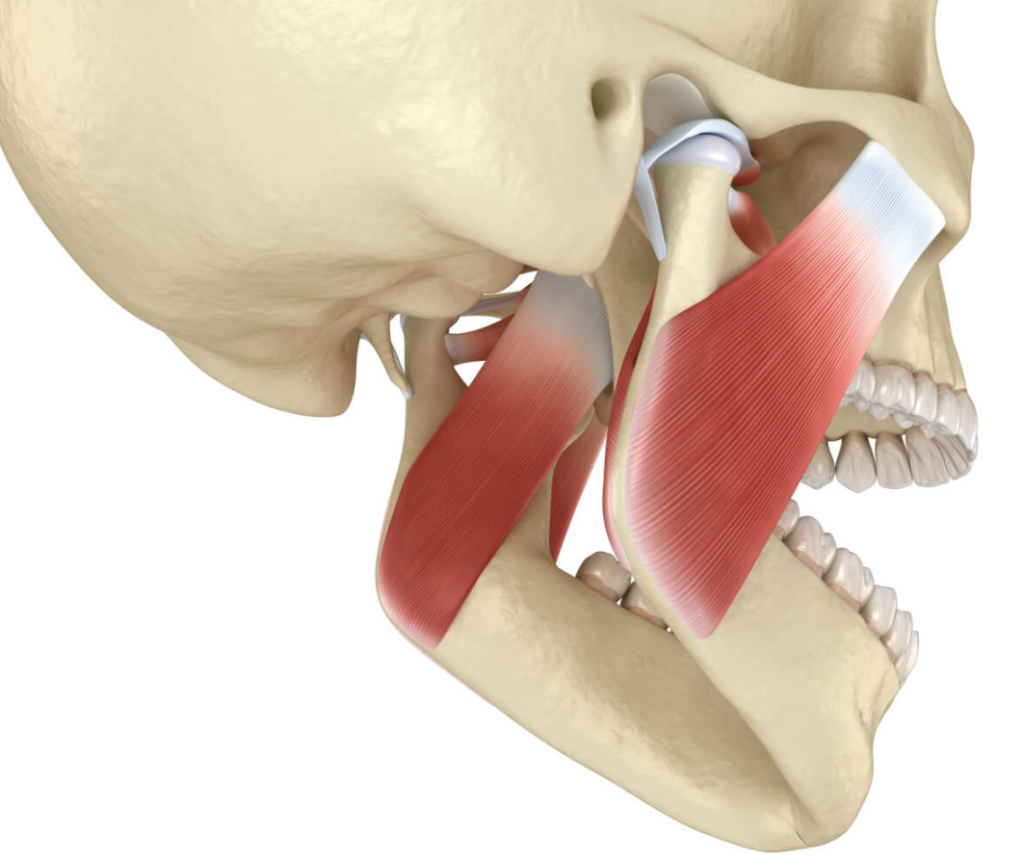
At Rockville Dental Arts, a leading dentist in Rockville MD, we often encounter patients struggling with jaw pain, difficulty chewing, or clicking sounds when opening their mouths. These symptoms are frequently associated with temporomandibular joint (TMJ) disorders. In this comprehensive guide, we’ll explore the causes, symptoms, and treatment options for TMJ disorders, helping you understand this common but often misunderstood condition.
What is the Temporomandibular Joint?
The temporomandibular joint connects your jawbone to your skull. It acts like a sliding hinge, allowing you to talk, chew, and yawn. You have one of these joints on each side of your jaw. When these joints are functioning correctly, they work in harmony to facilitate smooth jaw movement.
Understanding TMJ Disorders
TMJ disorders occur when there’s a problem with the joint itself or the muscles surrounding it. These issues can lead to pain and dysfunction in the jaw and surrounding areas.
Common Causes of TMJ Disorders
- Arthritis: Both osteoarthritis and rheumatoid arthritis can affect the TMJ.
- Jaw injury: A blow or other trauma to the jaw can lead to TMJ problems.
- Chronic grinding or clenching of teeth (bruxism): This often unconscious habit puts excessive stress on the joint.
- Misalignment of the jaw or teeth: An improper bite can strain the TMJ.
- Stress: Increased muscle tension due to stress can affect the TMJ.
- Connective tissue diseases: These can sometimes involve the TMJ.
Recognizing the Symptoms
TMJ disorders can manifest in various ways. Common symptoms include:
- Pain or tenderness in the jaw, face, neck, or shoulders
- Difficulty or discomfort while chewing
- Clicking, popping, or grating sounds in the jaw joint when opening or closing the mouth
- Locking of the jaw joint, making it difficult to open or close the mouth
- Headaches, often mimicking migraines
- Earaches or ringing in the ears (tinnitus)
- Dizziness or vertigo
- Neck pain and stiffness
If you’re experiencing any of these symptoms, it’s important to consult with a dentist or healthcare professional. At Rockville Dental Arts, we specialize in diagnosing and treating TMJ disorders.
Diagnosing TMJ Disorders
Diagnosing TMJ disorders involves a combination of physical examination and, in some cases, imaging tests. During your visit to Rockville Dental Arts, we may:
- Examine your jaw’s range of motion
- Listen for sounds from the jaw joint while you open and close your mouth
- Press on areas around your jaw to identify sites of pain or discomfort
- Use dental X-rays, CT scans, or MRIs to get a detailed view of your jaw structure
Treatment Options for TMJ Disorders
The good news is that for many people, TMJ disorder symptoms can be alleviated with conservative, non-surgical treatments. At Rockville Dental Arts, we offer a range of treatment options:
- Lifestyle Changes and Self-Care
Often, simple changes can make a big difference:
- Eating softer foods
- Avoiding extreme jaw movements (like wide yawning or gum chewing)
- Practicing stress-reduction techniques
- Applying ice or heat packs to the affected area
- Physical Therapy
Specific exercises can help strengthen jaw muscles and improve flexibility.
- Medications
Depending on your symptoms, we might recommend:
- Over-the-counter pain relievers and anti-inflammatories
- Prescription-strength ibuprofen
- Muscle relaxants for severe cases
- Oral Appliances
Custom-fitted oral appliances, often called splints or night guards, can help prevent teeth grinding and reduce pressure on the TMJ.
- Dental Work
If your TMJ disorder is caused by a misaligned bite, dental treatments to correct your bite might be necessary. This could involve:
- Replacing missing teeth
- Moving teeth with orthodontics
- Adjusting the surfaces of your teeth
- BOTOX® Injections
In some cases, BOTOX® injections can help relax the muscles that contribute to TMJ pain.
- Surgery
Surgery is typically considered a last resort for TMJ disorders. It’s only recommended when other treatments have been unsuccessful and the pain is severe.
Preventing TMJ Disorders
While not all TMJ disorders can be prevented, you can reduce your risk by:
- Practicing good posture, especially if you work at a desk
- Avoiding chewing gum and biting hard objects (like pen caps or ice)
- Using proper technique when lifting heavy objects to avoid straining your jaw
- Managing stress through relaxation techniques or counseling
- Wearing a mouthguard during contact sports to protect your jaw
When to Seek Professional Help
If you’re experiencing persistent jaw pain, difficulty chewing, or if your jaw clicks or locks frequently, it’s time to seek professional help. At Rockville Dental Arts, our experienced team is equipped to diagnose and treat TMJ disorders effectively.
Living with TMJ Disorders
For many people, TMJ disorders are temporary and respond well to conservative treatments. However, some individuals may experience chronic TMJ issues. In these cases, ongoing management strategies and regular dental check-ups are crucial.
Remember, everyone’s experience with TMJ disorders is unique. What works for one person may not work for another. That’s why at Rockville Dental Arts, we take a personalized approach to treating TMJ disorders, tailoring our treatment plans to each patient’s specific needs and circumstances.

Conclusion
TMJ disorders can significantly impact your quality of life, but with proper diagnosis and treatment, relief is possible. If you’re experiencing symptoms of a TMJ disorder, don’t hesitate to reach out to us at Rockville Dental Arts. Our team of skilled professionals is here to help you understand your condition and find the most effective treatment path.
Remember, your oral health is an integral part of your overall well-being. By addressing TMJ issues promptly, you’re not just alleviating pain—you’re investing in your long-term health and comfort. Schedule an appointment with us today, and take the first step towards a pain-free, healthy smile.

